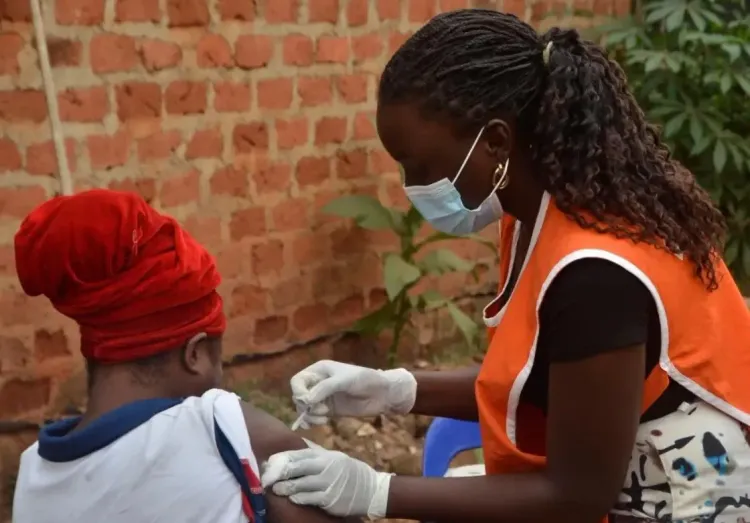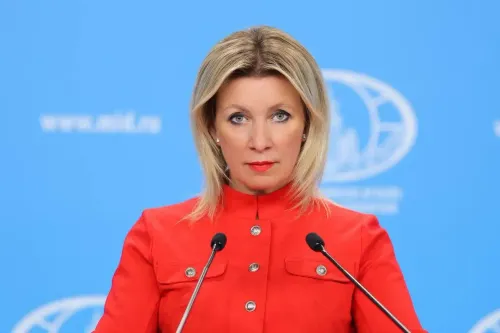Uganda Unveils Major Malaria Vaccination Initiative for 1.1 Million Children

Synopsis
Key Takeaways
- 1.1 million children under two targeted.
- R21/Matrix-M vaccine to be administered.
- 105 districts involved in the rollout.
- Potential to prevent 800 severe malaria cases daily.
- Strong support from WHO and UNICEF.
Kampala, April 3 (NationPress) Uganda has initiated a pivotal malaria vaccination initiative, with the goal of immunizing 1.1 million children under the age of two in its most extensive rollout thus far.
The official launch of this immunization campaign took place at Booma Grounds in the Apac district of northern Uganda, officiated by Prime Minister Robinah Nabbanja. The program intends to provide the R21/Matrix-M vaccine to infants aged six to 18 months.
During the event, Nabbanja stated, "This is a bold step toward liberating our nation from the grave burden of malaria, a disease that has long deprived our children of their futures, stressed our healthcare system, and impeded our socio-economic development."
The campaign, themed "Vaccinate Against Malaria and Other Preventable Diseases, Protect Your Child for Life," is projected to cover 105 out of 146 districts with moderate to high malaria transmission, according to reports from the Xinhua news agency.
Since receiving pre-qualification and endorsement from the World Health Organization (WHO) in 2021, this vaccine has emerged as a crucial asset in the fight against malaria. Following three phases of clinical trials, it has been recognized as a transformative tool in alleviating the disease's burden and reducing child mortality rates.
This vaccination rollout positions Uganda as the 19th African nation to incorporate the malaria vaccine into its routine immunization schedule. WHO Representative to Uganda, Kasonde Mwinga, mentioned, "By including the malaria vaccine in routine immunizations, Uganda is making a courageous move to safeguard its children, save lives, and ensure a healthier future."
Health Minister Jane Ruth Aceng emphasized this introduction as a crucial milestone in Uganda's battle against malaria, projecting that it will prevent at least 800 cases of severe malaria among children daily and lessen the financial strain on families.
She encouraged parents and caregivers to ensure that children complete all four doses—administered at six, seven, eight, and 18 months—to achieve optimal protection.
The introduction of this vaccine broadens Uganda's routine immunization program to include 14 childhood vaccines, making it one of the most extensive in Africa, as per the Ministry of Health.
The rollout follows successful pilot programs in Ghana, Kenya, and Malawi, where the vaccine contributed to a 13 percent reduction in malaria-related fatalities and significantly decreased hospital admissions, according to the WHO.
Malaria continues to be the leading cause of illness and fatalities among young children in Uganda. In 2024, the country recorded 10.9 million malaria cases and 3,582 deaths.
Recently, Uganda received 2.2 million out of 3.5 million doses for nationwide distribution, supported by Gavi, the Vaccine Alliance.
Robin Nandy, representative of the United Nations Children's Fund in Uganda, stressed that the vaccine should be used alongside other preventive measures against malaria, such as insecticide-treated nets, indoor residual spraying, and seasonal malaria chemoprevention.









